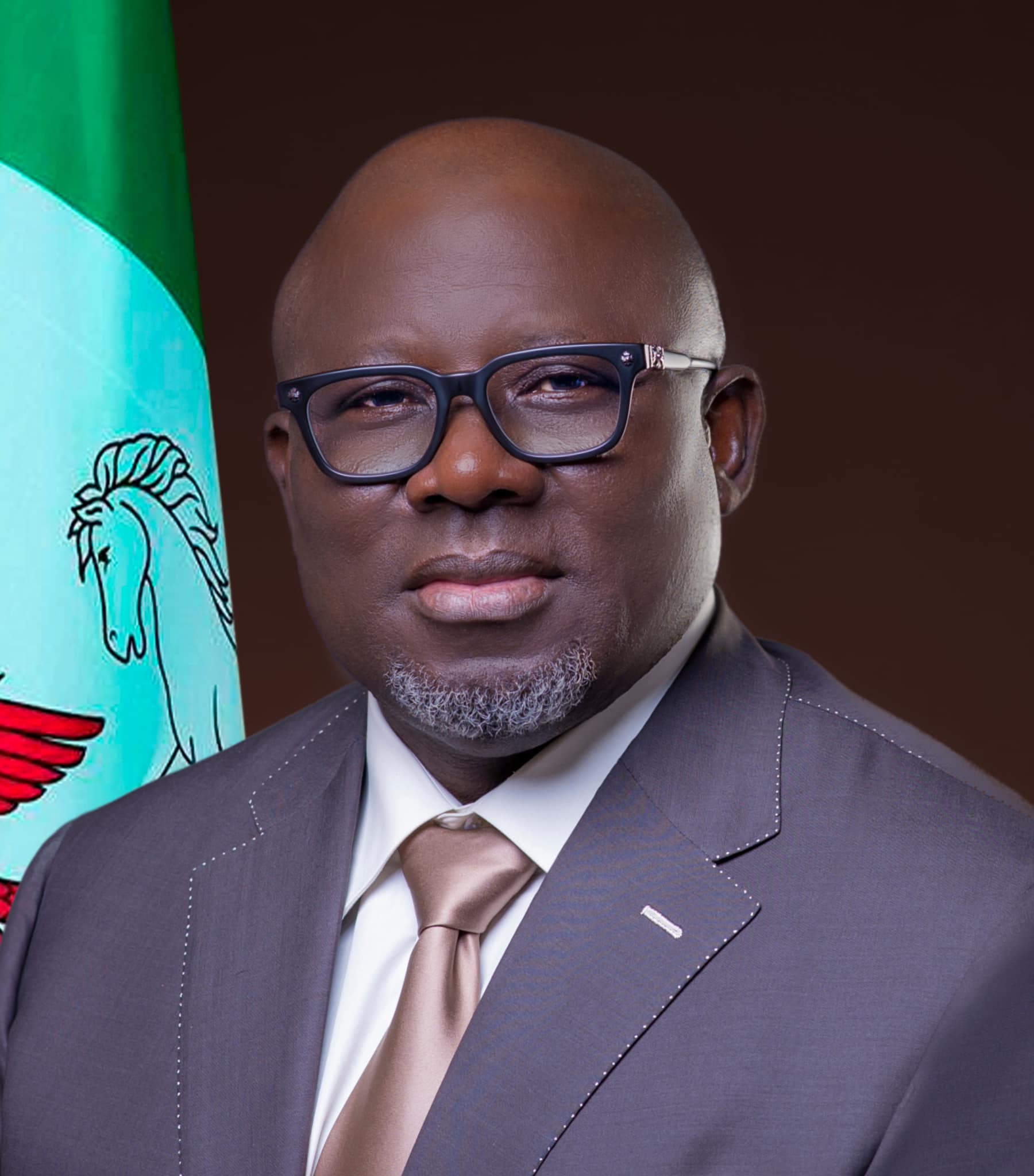BUSINESS
W’Bank: Nearly 2.4bn Women Globally Lack Economic Rights Unlike Men

By Joseph Amah, Abuja
About 2.4 billion women of working age are not afforded equal economic opportunity, and 178 countries maintain legal barriers that prevent their full economic participation, according to the just-released World Bank’s Women, Business and the Law (WBL) 2022 report.
Women in 186 countries face some form of job restriction and 95 countries do not guarantee equal pay for equal work, the report stated.The Middle East and North Africa and sub-Saharan Africa regions showed the largest improvements in the WBL Index in 2021, though they continue to lag behind other parts of the world overall. Gabon stands out with comprehensive reforms to its civil code and the enactment of a law on the elimination of violence against women.
Gabon’s score rose from 57.5 in 2020 to 82.5 in 2021. The report noted that while Nigeria has made some progress in socio-economic terms in recent years, human capital development remains weak due to under-investment and important challenges in terms of oil dependency, governance issues, weak infrastructure, and gender equality. “Women in Nigeria face gaps in economic empowerment and challenges to the exercise of voice and agency. When women are given the same opportunities as men, they enter and remain in the labour force, strengthening economies and enabling development. “Gender equality is also associated with better development outcomes, such as lower rates of vulnerable employment and extreme poverty among female workers,” the report said. Nigeria was scored 63.1 out of 100 on the Women, Business and the Law index, indicating that although progress had been made, there is more work to be done.The score is below both the regional average for Sub-Saharan Africa (71.0) and the global average (76.1).“The current score can be attributed to the limited progress made on legal reforms recoded by Women, Business and the Law over the last 50 years,” the report added. According to the World Bank report, globally, women still have only three quarters of the legal rights afforded to men — an aggregate score of 76.5 out of a possible 100, which denotes complete legal parity. However, despite the disproportionate effect on women’s lives and livelihood from the global pandemic, 23 countries reformed their laws in 2021 to take the much-needed steps towards advancing women’s economic inclusion, according to the report. “While progress has been made, the gap between men’s and women’s expected lifetime earnings globally is US$172 trillion – nearly two times the world’s annual GDP. “As we move forward to achieve green, resilient and inclusive development, governments need to accelerate the pace of legal reforms so that women can realize their full potential and benefit fully and equally,” said World Bank Managing Director of Development Policy and Partnerships, Mari Pangestu. Women, Business and the Law 2022 measures laws and regulations across 190 countries in eight areas impacting women’s economic participation – mobility, workplace, pay, marriage, parenthood, entrepreneurship, assets, and pensions. The data offer objective and measurable benchmarks for global progress towards gender equality. Just 12 countries, all part of the Organisation for Economic Cooperation and Development (OECD), have legal gender parity. New in this year’s WBL is a 95-country pilot survey of laws governing childcare — a critical area where support is needed for women to succeed in paid employment.
A pilot analysis of how laws affecting women’s economic empowerment are actually implemented is also included, highlighting the difference between laws on the books and the reality experienced by women. Globally, the highest number of reforms were made in the Parenthood, Pay, and Workplace indicators. Many reforms are focused on protecting sexual harassment in employment, prohibiting gender discrimination, increasing paid leave for new parents, and removing job restrictions for women. The Pay and Parenthood indicators have the lowest average scores in the index, but they have increased in the last year, rising 0.9 and 0.7 points, respectively, with average scores of 68.7 and 55.6.
The gains in the Parenthood indicator have largely been around paternity leave and shared parental leave, but the low score highlights the need to accelerate reforms in this area. “Women cannot achieve equality in the workplace if they are on an unequal footing at home. “That means levelling the playing field and ensuring that having children doesn’t mean women are excluded from full participation in the economy and realizing their hopes and ambitions,” said the Senior Vice-President and Chief Economist of the World Bank Group, Carmen Reinhart.
BUSINESS
DMO Takes Sensitisation on Borrowing Guidelines to Northern States

The Debt Management Office (DMO) said that its World Bank-assisted workshop on borrowing guidelines was designed to intimate subnational entities within Northern Nigeria on proper borrowing ethics.
The Director-General of the DMO, Patience Oniha, said this at the workshop on Borrowing Guidelines organised for top policy makers in Abuja on Tuesday.
He said that the workshop was under the aegis of States Action on Business Enabling Reforms (SABER).
He said it was important to align borrowing practices within the states with that of the Federal Government.
Oniha said that borrowing needed several layers of approvals and debt managers needed to understand why those approvals are required.
“Debt is such an important fiscal variable that involves several stakeholders, that is why we have a diverse group here.
“The objective is that after this workshop, your collaboration with your different states will be stronger.
“We need to keep empowering people with knowledge about creating skills so that work goes on smoothly.
“How do we make the process work? How do we make the subnational governments understand the process of borrowing so that they can raise the funds that they need for development?
“If they have not understood the process, they cannot comply and they cannot raise the funds,” she said.
Oniha said that the idea was to equip the states with all the skills and knowledge they needed, so that each time they want to borrow, they are ready and the process is smooth.
“Ultimately, the expectation is that the funds that they raise will be used for development in the state.”
She commended the World Bank for its interest in activities around public debt management in Nigeria.
“Debt is such an important fiscal variable that we cannot stop talking about it. We must get it right to make it sustainable.
“You can see what has happened to countries that have had to restructure their debts, the problems they went through; the downgrading by the international debt rating agencies; and their inability to borrow.
“Because debt is important, there are laws around borrowing. You want the borrowing process to be transparent, so it is not just one person that took the decision.
“The purpose has to be clear; the loan has to be properly documented; it should be monitored, it should be reported so that you can service it.
“When you do not service it, the consequences are not good. So, let us talk about debt sustainability. How will you know what to do? How will you know when to stop?” Oniha queried.
The Acting Head of Service, Federal Capital Territory (FCT), Nancy Nathan, described the workshop as an intersection of opportunity and responsibility.
Nathan said that the workshop was tied to equipping states and the FCT with the knowledge and tools necessary to navigate the complexity of the borrowing process
According to her, in a rapidly evolving economic landscape, access to finance is not just a necessity but a critical enabler for development.
“This workshop is aimed to demystify the borrowing process and clarify documentation requirements.
“It will empower our top policymakers to make informed decisions that will ultimately enhance our capacity to meet the financial needs of our respective states.
“As we embark on this journey of learning and collaboration, let us engage openly, share our insights, and push past limits that will drive our collective success,” Nathan said.
BUSINESS
Oborevwori Signs N1.729trn 2026 Budget, Three Other Bills into Law

From Francis Sadhere, Delta
Delta State Governor, Sheriff Oborevwori on Tuesday signed the 2026 Appropriation Bill of N1.729 trillion, tagged “Budget of Accelerating the MORE Agenda,” alongside three other key bills passed by the Delta State House of Assembly into law.
The assent paves the way for accelerated development, improved security and strengthened social welfare across the state.
The three additional laws are the Delta State Social Investment Programme Law, the Delta State Colleges of Education Law, 2025, and the Delta State Anti-Terrorism and Anti-Cultism (Amendment) Law, 2025.
Speaking during the signing ceremony, Governor Oborevwori described the 2026 budget as “not just a budget of figures, but a budget of vision, action and expected deliverables for the next twelve months,” assuring that the state would hit the ground running in 2026 to fast-track development across critical sectors.
The N1,729,881,208,779 budget represents an increase of over 70 per cent compared to the 2025 budget. The Governor said the estimate, though ambitious, was achievable, noting that 70 per cent of the budget is allocated to capital expenditure, while 30 per cent is for recurrent spending. According to him, the spending plan reflects his administration’s commitment to infrastructure-led growth and sustainable development.
Oborevwori said that in 2025, the state intensified investments in infrastructure, security, fiscal discipline and revenue generation, resulting in improved internally generated revenue without placing additional burdens on citizens. He noted that these gains underscore the success of the administration’s reforms and its resolve to further strengthen the state’s economy.
Explaining the significance of the accompanying laws, the Governor said the Social Investment Programme Law provides a legal framework for equitable, grassroots-focused access to resources and services, especially for vulnerable and underserved populations, without discrimination.
He added that the Colleges of Education Law, 2025, standardised the operations of state-owned colleges of education, enabled them to award Nigerian Certificate in Education (NCE) and education degrees concurrently, and expanded their capacity to train more qualified teachers.
On security, Oborevwori said the Anti-Terrorism and Anti-Cultism (Amendment) Law strengthens the legal framework to tackle terrorism, cultism and related crimes, bringing state laws in line with contemporary security realities.
The Governor commended the Speaker, leadership and members of the Delta State House of Assembly, as well as the Clerk and staff of the House, for the timely passage of the budget and other bills, noting the strong synergy between the executive and legislature. He also thanked stakeholders, cabinet members, civil servants and citizens for their contributions, while wishing Deltans a Merry Christmas and a prosperous New Year.
Earlier, Speaker of the Delta State House of Assembly, Rt. Hon. Emomotimi Guwor, said the passage of the four bills followed rigorous legislative engagement, wide consultations and thorough scrutiny in line with the Assembly’s constitutional responsibilities.
Guwor explained that the Social Investment Programme Law institutionalized social intervention initiatives aimed at protecting vulnerable citizens and promoting inclusive growth and social justice. He said the Colleges of Education Law, 2025, establishes a uniform framework to enhance the quality and efficiency of teacher education and reduce disparities among state-owned colleges.
He added that the Anti-Terrorism and Anti-Cultism (Amendment) Law addresses emerging security challenges and corrects gaps in the principal legislation, including the absence of a clear definition of cultism.
On the 2026 Appropriation Law, the Speaker said the House scrutinised the budget sector-by-sector in line with the MORE Agenda before passing the N1.729 trillion estimate.
According to him, the assent to the bills further highlights the cordial and productive relationship between the legislature and the executive, driven by a shared vision for a peaceful, secure and prosperous Delta State, and will significantly advance good governance and socio-economic development in the state.
Oil & Gas
NCDMB Oil, Gas Parks Near Completion, Set for 2026 Inauguration

The Nigerian Content Development and Monitoring Board said its Nigerian Oil and Gas Parks Scheme, established to boost local manufacturing through shared infrastructure and embedded power solutions, would be inaugurated in 2026.
Abdulmalik Halilu, spokesman for NCDMB, disclosed this on Monday in Abuja while presenting an overview of the Board’s mandate and achievements at a capacity-building workshop for the media.
NCDMB established the NOGAPS with the primary aim of domiciling and domesticating oil and gas activities in-country by facilitating local manufacturing.
The scheme is a key part of the NCDMB’s 10-year Strategic Roadmap to increase Nigerian content in the industry to 70 per cent by 2027.
Halilu said eight oil and gas industrial parks, covering Bayelsa, Cross River, Akwa Ibom, Imo, Delta, Ondo, Abia, and Edo, were being established.
“NOGAPS in Bayelsa and Cross River states are at 90 per cent completion and due for commissioning in 2026,’’ he said
Mr Halilu said the parks would provide infrastructure and services plots for manufacturing outfits, adding that its local content policy had evolved into a powerful tool for industrialisation, job creation and sustainable economic growth in the sector.
He said local content was designed to stop capital flight and reposition the oil and gas industry as a catalyst for national development.
According to him, exporting oil and gas services outside Nigeria amounted to exporting jobs, capital and industrialisation opportunities, a situation the Federal Government deliberately moved to reverse through local content policies.
He said the success of early local content initiatives led to the enactment of the Nigerian Oil and Gas Industry Content Development Act, which institutionalised the policy and insulated it from political changes.
“The philosophy of local content is simple: what can be competitively produced in Nigeria should be produced in Nigeria, without compromising standards, pricing or project timelines,” Halilu said.
He explained that the NOGICD Act assigns NCDMB two core responsibilities, namely building indigenous capacity and enforcing compliance with the Act, which contains schedules and nearly 300 performance targets.
Highlighting achievements, he cited the Nigeria LNG Train 7 project as a major success story, with over 93 per cent Nigerian workforce participation, engagement of 1,400 vendors, and significant domiciliation of fabrication, engineering and manufacturing activities.
He said capacities developed for oil and gas projects now serve other sectors such as power and construction, reinforcing the sector’s multiplier effect on the economy.
On financing, he said NCDMB had deployed funds from the Nigerian Content Development Fund through intervention programmes, including single-digit interest loans for indigenous companies, asset-acquisition financing, and working capital support introduced during the COVID-19 pandemic.
Halilu also said that NCDMB had fully automated its processes, eliminating physical visits for certifications and approvals, and placing the Board among Nigeria’s top-performing agencies in ease-of-doing-business rankings.

























